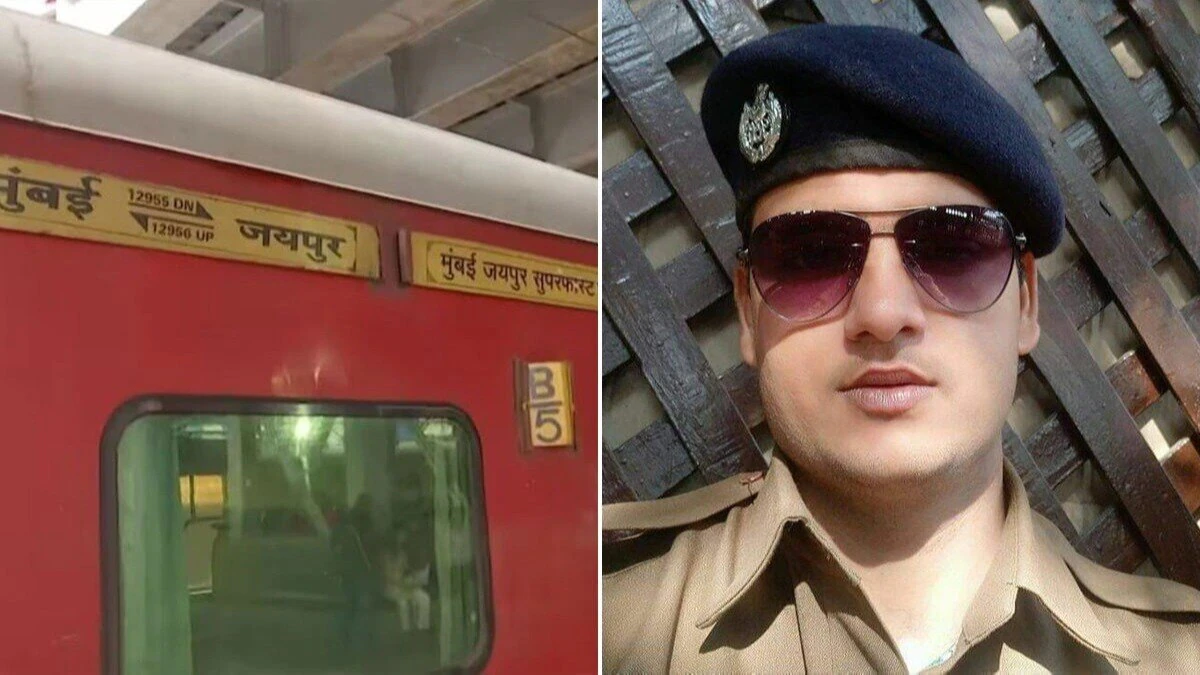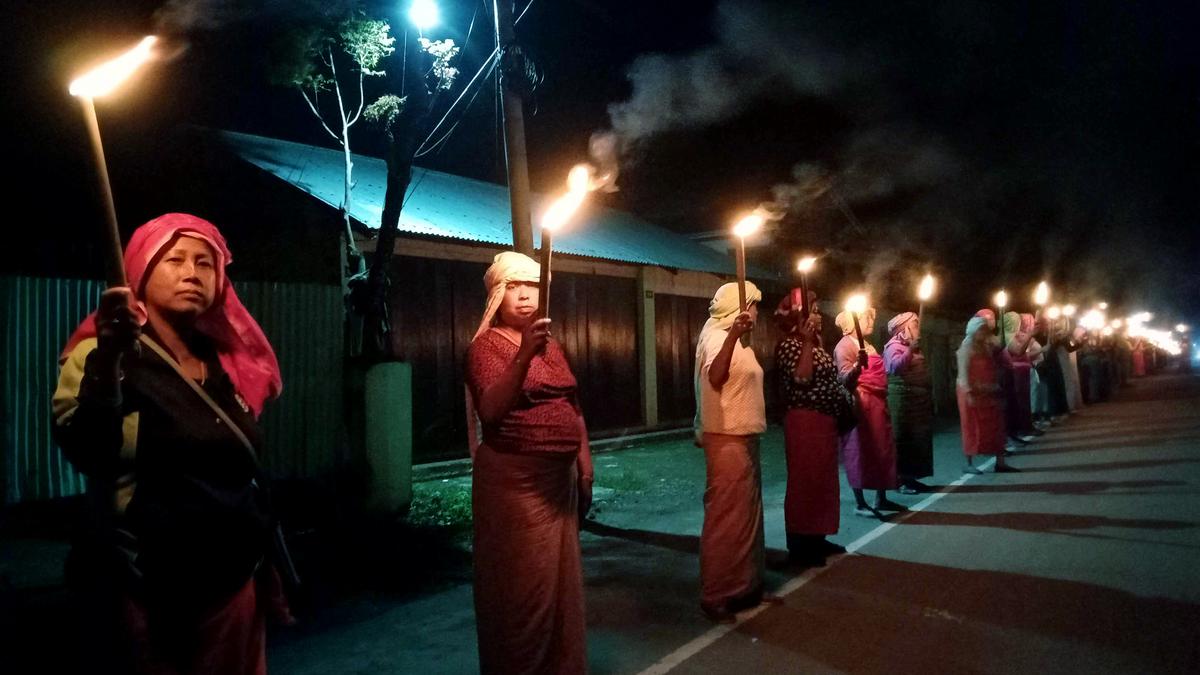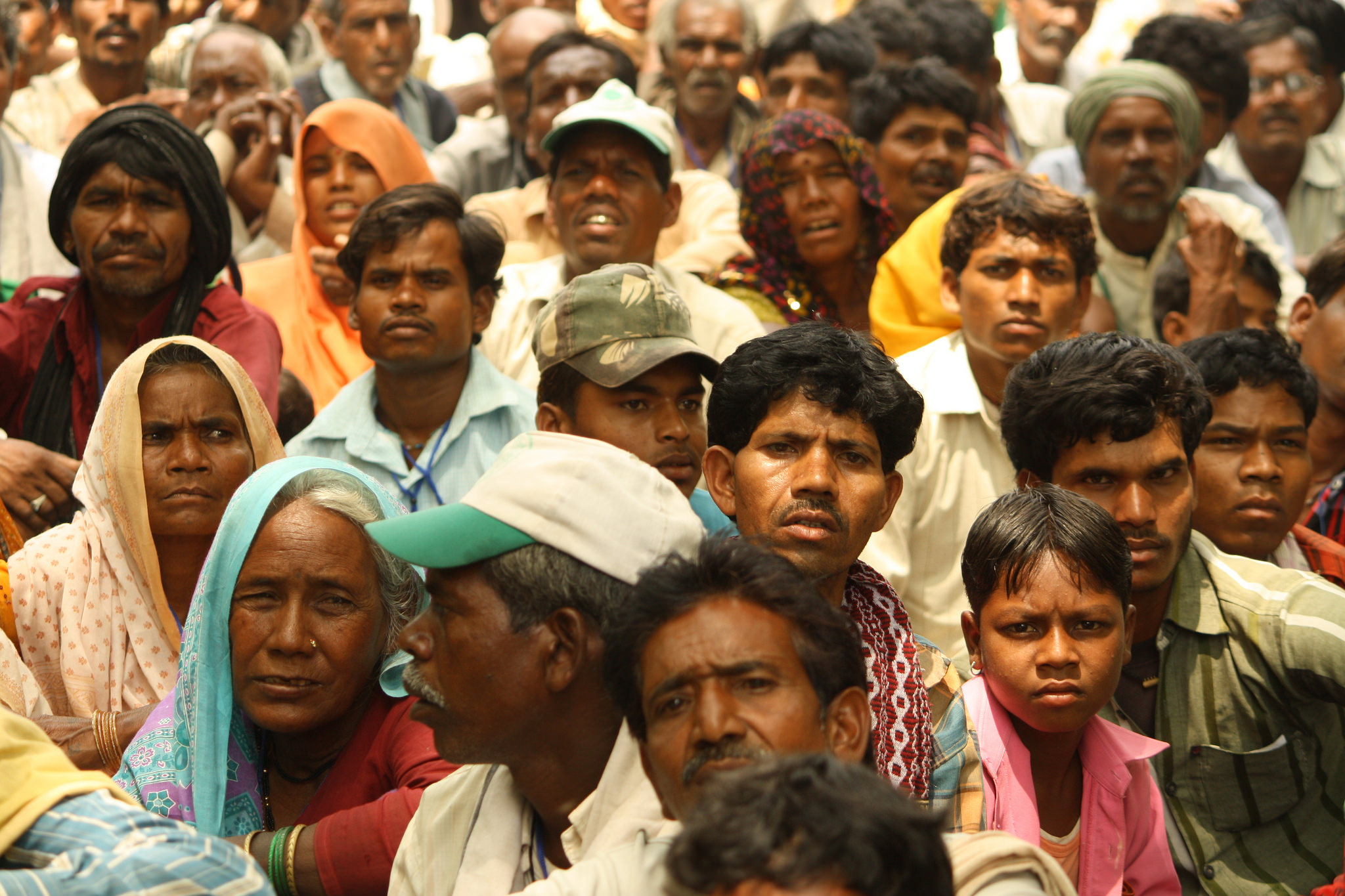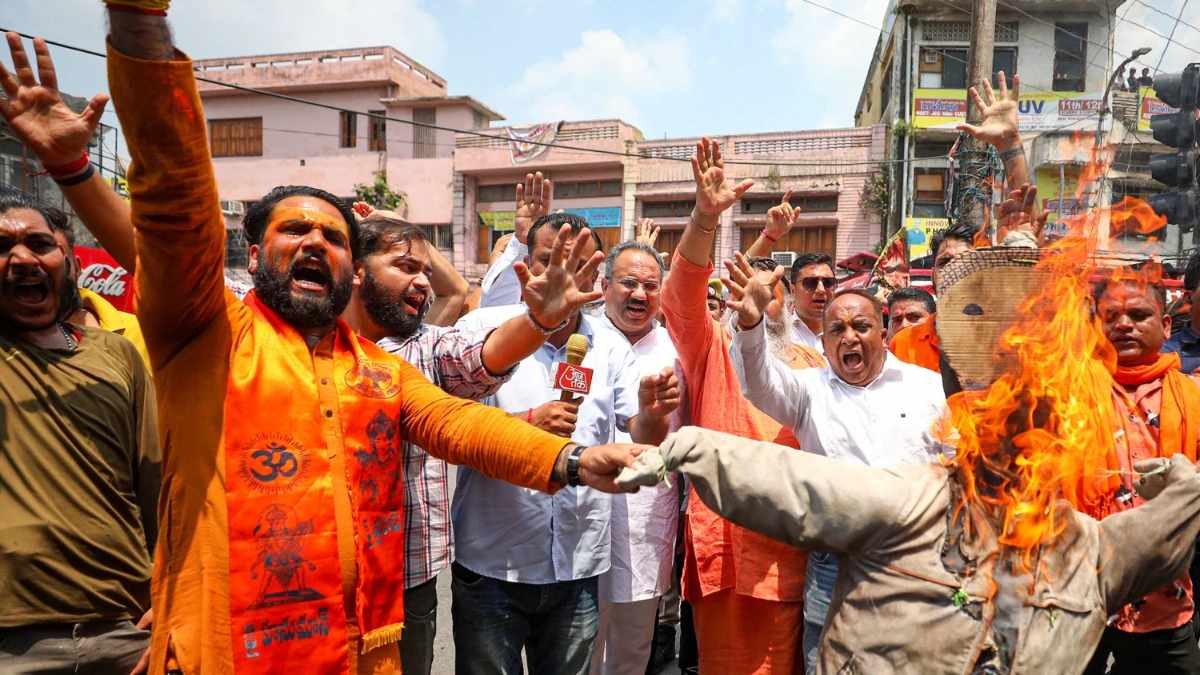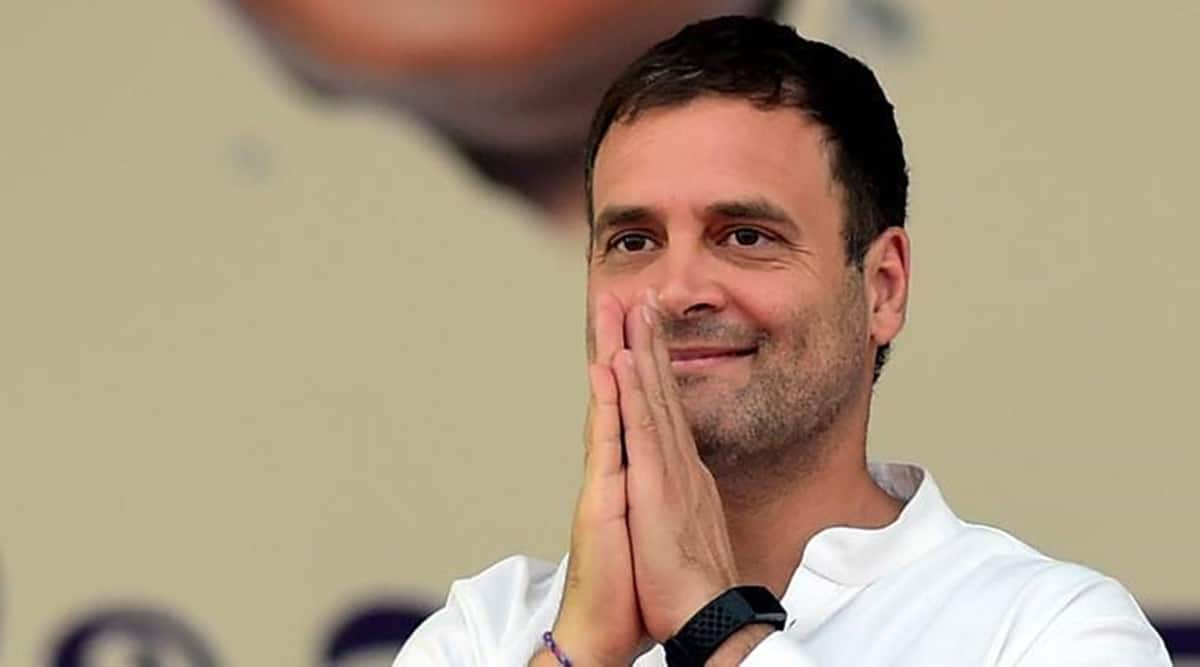Chetan Singh, a constable with the Railway Protection Force, is accused of opening fire with his automatic weapon in the early hours of Monday near the Palghar railway station on the outskirts of Mumbai, killing his senior colleague Tika Ram Meena, three passengers, all of whom were clearly Muslims, and himself.
Singh was heard using the terms “Modi-Yogi” and “Thackeray” on a video that was allegedly taken during the incident. According to earlier media reports from Western Railways authorities, the accused got into “an argument over communities.” Later, he was caught when his attempts to flee failed.
In the footage, Singh can be seen addressing the passengers after killing one traveller while sporting a beard and wearing a Pathan outfit, giving him a clearly Muslim look. “If you want to vote, if you want to live in India, then I say, Modi and Yogi, these are the two, and your Thackeray,” he said. “If you want to live in Hindustan, then this is what you should do.”
Abdul Qadirbhai Mohammed Hussain Bhanpurwala, Akhtar Abbas Ali, and Sadar Mohammed Hussain have been named as the three civilian casualties.
The nation’s home minister and railway minister both remained silent in response, as did Prime Minister Narendra Modi. The incident was described as “unfortunate” by a junior railway official of India’s Western Railways, who also stated that a preliminary inquiry had shown the constable had “opened fire using his official weapon.” This was the only official remark I could locate. The defendant was taken into custody.
Early that morning, the police constable on the Mumbai-Jaipur Superfast Express shot and killed ASI Tikaram Meena, his superior officer. Then, it is said that he shot and murdered Abdul Kaderbhai Bhanpurwala, a bearded and obviously Muslim guy who was riding in the same carriage. Sadar Mohammed Hussain, another bearded and obviously Muslim passenger in the pantry car, was the next person he encountered after moving past four coaches and down the vestibule. He was fatally shot once more. The officer continued on through two more carriages until finding Asghar Abbas Shaikh, another individual who was easily recognised as a member of the Muslim religion, and shooting him dead as well.
The constable is shown in the footage standing quietly; not a single passenger can be seen attempting to hold him, albeit probably because he was armed. Only a few individuals shooting videos can be seen.
Millions of Muslims would likely live in every part of this large, populous country, afflicted by the same thoughts and anxieties that she was. I also came to the realisation that no member of our ruling class is able to comfort and reassure Muslims in India.
The distinct, even pathological, lack of public sympathy among our leaders is maybe the greatest tragedy facing New India right now. Instead, a great many of them have turned into tools of hatred.
Explore other parts of the globe. President Donald Trump issued a strong statement following the death of African American man George Floyd, 47, by a Minneapolis police officer who crushed his neck with his knee in May 2020. “I can’t breathe” was Floyd’s final phrase. Donald Trump is a far-right politician who is infamous for having no pity or support for people of colour but reacted against the killing.
Or consider the more recent killing of Nahel M, a 17-year-old Muslim North African kid who was killed by the police in a Paris neighbourhood after a traffic check. President Emmanuel Macron spoke out against the police in a direct and straightforward manner. “We have an adolescent that was killed; it is unexplainable and inexcusable,” he told the press. Nothing can justify a young man’s death. In addition, the president expressed “solidarity and affection” to the teen’s family and promised that justice would be served once peace had been restored.
What moral catastrophe has overtaken this nation if we hear nothing from our elected officials about shared suffering, fury, public remorse, or assurance?
Long-lasting popular protests against the police killings of targeted minorities occurred in both France and the United States. What moral problem has gripped the Indian people collectively if a horrifying hate crime committed by a uniformed police officer of the type we saw on the Mumbai-Jaipur Superfast Express train on July 31 has not sparked widespread outrage?
On August 2 (Wednesday), the Railways first claimed in a statement that the RPF constable charged in the Jaipur-Mumbai train hate crime had no mental illness, only to retract it hours later. Before any investigations, unnamed Railways officials claimed that Singh’s mental instability was to blame for the incident. When Singh was brought before a magistrate in Mumbai’s Borivali court, the remand copy made no mention of the video that clearly showed his racially charged speech. Instead, it concentrates only on Singh’s “illness” and shows how his unstable mental state caused him to take the drastic action of killing four people while performing his official duties.
Instead, media outlets are working hard to persuade us that the shooting was not a hate crime but rather the work of a mentally disturbed guy. The identities of the people he killed were initially not mentioned in the majority of publications. Some individuals said that he just randomly shot people, dishonestly avoiding the subject of why all the victims were Muslims if the shooter was a mentally unbalanced guy. How come his superiors trusted the constable with a deadly weapon if he had a mental illness?
Some individuals said that he just randomly shot people, dishonestly avoiding the subject of why all the victims were Muslims if the shooter was a mentally unbalanced guy. How come his superiors trusted the constable with a deadly weapon if he had a mental illness?
Most importantly, where is there any widespread moral reflection on what it was that so corrupted this young constable’s soul that he felt forced to kill three strangers only because of their religious affiliation? Why do we not inquire as to the origin of this hatred that is so destructive to young souls?
Consider for a second if the police officer had slain Hindu passengers and been a Muslim. What would then have been the political and media discourse’s frantic intensity and decibel level? Fingers of suspicion for aiding this horrible terrorist act would have been pointed fiercely towards India’s neighbours once the shooting was promptly denounced as a terrorist strike. However, because a caste Hindu officer shot Muslim passengers, there is little political or social outrage, and it is hardly accepted that the murderer was a lone wolf terrorist in uniform, as he obviously was.
